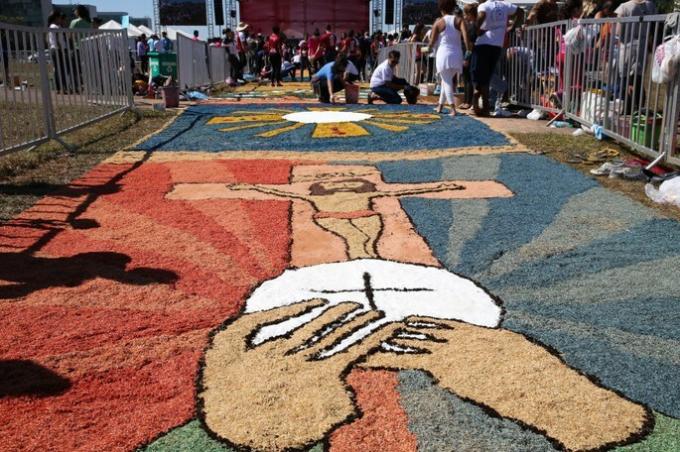On April 22, some people in Brazil celebrate the arrival of the Portuguese in the territory where the country is located today. For a long time, the official version of the story said that Brazil was discovered by chance after an unexpected change of route, when the fleet of Pedro Alvares Cabral was in the Atlantic Ocean. In this version, with great luck Portugal had conquered the largest territorial portion of its Empire.
Cabral's arrival on the Brazilian coast took place almost two months after leaving Portugal, on March 8, 1500. Cabral's destination was the city of Calicut, in India, where a few years before the navigator Vasco da Gama had arrived, after bypassing the African continent, carrying out extremely valuable commercial exchanges in the Indian city.
But as a result of sea currents, the navigation route was changed without the navigators noticing. This change of course brought Cabral and his more than 1000 men to land on the northeast coast of Brazil on April 22, 1500. Second Pero Vaz de Caminha, the first point of land that they saw was a mountain, located in the south of Bahia, which they called mount paschal, for being on the eighth day of the Christian Easter. Then they saw the land at the foot of the mountain, and Cabral called it Vera Cruz.
Soon after, they landed further north of that mountain, in a place known as Santa Cruz Cabrália, where they made the first contacts with the indigenous population. There was a first attempt at catechizing and the first Catholic mass was held in the land of Vera Cruz by Father Henrique de Coimbra.
The Portuguese stayed in the region until May, when Pedro Álvares Cabral continued his journey to Calicut, sending one of his vessels to Portugal, with the mission of informing King D. Manuel II of the discovery of the new land. Two of his men would stay on Brazilian soil. The Portuguese would only carry out the occupation of the territory about 30 years later.
This is the official version of history, but several historians question it.
The first question that historians ask is: After all, what happened was the discovery or the conquest of Brazil? The word discovery is related to a discovery, something unknown to other people. However, millions of people already inhabited the territory “discovered” by the Portuguese, the “Indians”, who were so called because the Europeans believed they had arrived in India. Thus, how could the Portuguese discover something that others already knew? What they did was to reach an already inhabited location, starting from there to conquer this territory.
The other questions are: didn't the Portuguese really know about the existence of the lands? Would they have arrived by chance on the Brazilian coast?
There are indications that the cosmographer Duarte Pacheco Pereira he had participated in a secret expedition to this region, to learn of the existence of new lands west of the Atlantic Ocean, in 1498. Duarte Pacheco Pereira was one of the crew of Pedro Álvares Cabral's squadron. These evidences lead us to think that the Portuguese knew of the existence of the lands, and that the passage through the coast of Brazil was not by chance, but to get to know the and affirming to the European world that this territory belonged to the Portuguese portion of the terrestrial globe, which was defined in the sharing of the Treaty of Tordesillas, signed in 1494.
* Image Credit: nephthali and Shutterstock.com
By Tales Pinto
Graduated in History


